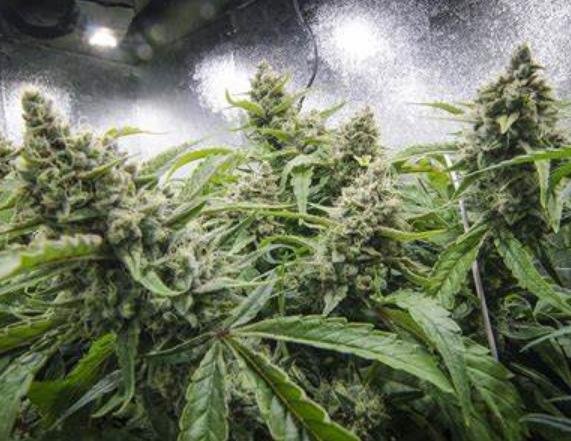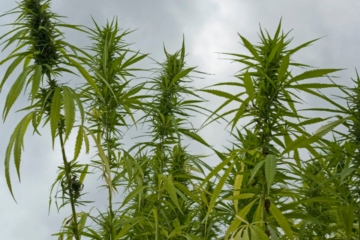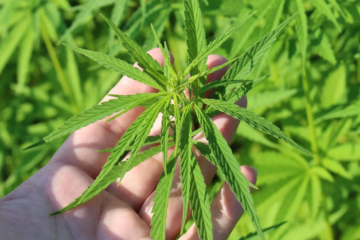Hawaii lawmakers have taken a significant step forward in expanding the state’s medical cannabis program. A newly amended bill now allows healthcare providers to recommend marijuana for any condition they deem appropriate, bypassing the restrictions of a predefined list of qualifying ailments.
This legislative shift could pave the way for more patients to access medical marijuana, especially those who may have conditions not currently recognized by the state as eligible for treatment.
Expanding Access for Patients in Need
Hawaii’s medical marijuana program has traditionally been limited, with doctors only able to recommend cannabis for specific conditions outlined in state law. But under the new proposal, healthcare providers would have more flexibility in determining whether cannabis could benefit a patient, based on their professional judgment. The bill, known as HB 302, passed through both the Senate Committee on Health and Human Services and the Committee on Commerce and Consumer Protection, signaling strong support in the state legislature.
This is a notable change, as it acknowledges that medical marijuana could be beneficial for a broader range of conditions that may not be included in the current list of qualifying ailments. The amended legislation is expected to open up new possibilities for individuals suffering from conditions that might not have been considered for cannabis treatment in the past.
Rep. Gregg Takayama (D), who introduced the bill, believes that expanding access to medical cannabis could provide a vital treatment option for many patients. “We are simply providing doctors with the discretion they need to help those who may benefit from this treatment,” Takayama said in a statement.

What Does the Bill Change?
One of the key amendments to the bill involves redefining what constitutes a “debilitating medical condition.” Under the new language, any condition that a certifying physician or advanced practice registered nurse believes to be appropriate for medical cannabis use would be eligible for a recommendation. This is a departure from the previous law, which listed specific conditions that qualified for treatment.
The bill also removes the requirement that a medical marijuana recommendation be based on an “initial in-person consultation” with a doctor. This change could make it easier for patients to receive treatment, especially those who might face logistical or financial barriers to in-person appointments.
These amendments were approved by both Senate committees on Wednesday, following a favorable vote in the House of Representatives earlier this year. The changes mark a significant shift in how the state treats medical cannabis and could be a game-changer for individuals who previously had limited access to the treatment.
Governor’s Stance and Political Implications
Hawaii’s governor, David Ige, has long supported expanding access to medical marijuana, though efforts to legalize recreational cannabis have faltered. The state’s medical marijuana program, which has been in place since 2000, has faced challenges in meeting the needs of all patients. Governor Ige’s administration has expressed interest in broadening access, and this new bill aligns with that vision.
Despite the governor’s support for medical marijuana, broader cannabis legalization efforts have struggled to gain traction in Hawaii’s legislature. Bills aimed at legalizing recreational cannabis have not reached the governor’s desk, leaving medical marijuana as the main avenue for reform. The passing of HB 302 could be seen as a more incremental step toward the eventual possibility of broader cannabis policy changes in the state.
With this new bill, Hawaii could become one of the first states to allow such expansive access to medical marijuana, setting a precedent that could influence other states with similar legal frameworks. Advocates for cannabis reform in Hawaii are hopeful that this bill will spark further changes in the state’s cannabis policies.
Potential Impact on Patients and Healthcare Providers
For patients, the change could mean greater access to medical marijuana for conditions that haven’t been specifically recognized in state law. This is particularly important for those suffering from chronic pain, anxiety, and other mental health conditions that may not have been previously included in the state’s list of qualifying conditions.
For healthcare providers, the bill offers more discretion in determining what treatments are appropriate for their patients. It shifts the focus away from a restrictive list of conditions and instead empowers doctors and nurses to make decisions based on their professional judgment and expertise.
However, some medical professionals have raised concerns about the potential for overuse of medical marijuana or inappropriate recommendations. The lack of specific conditions on the list could open the door to misuse, which would need to be monitored closely by the state.
A Step Forward, But Not the End of the Road
While HB 302 represents a significant step toward more inclusive medical cannabis access, it is just one part of an ongoing conversation in Hawaii about the future of cannabis policy. Broader legalization efforts for recreational use are still on the table, and advocates will continue to push for changes that reflect the evolving understanding of cannabis as a treatment option.
The approval of this bill highlights the growing recognition of medical marijuana as a legitimate treatment for various conditions, even those not yet officially recognized by the state. The future of cannabis policy in Hawaii remains uncertain, but for now, HB 302 represents a key milestone in the state’s efforts to provide more accessible and effective treatment options for its residents.



